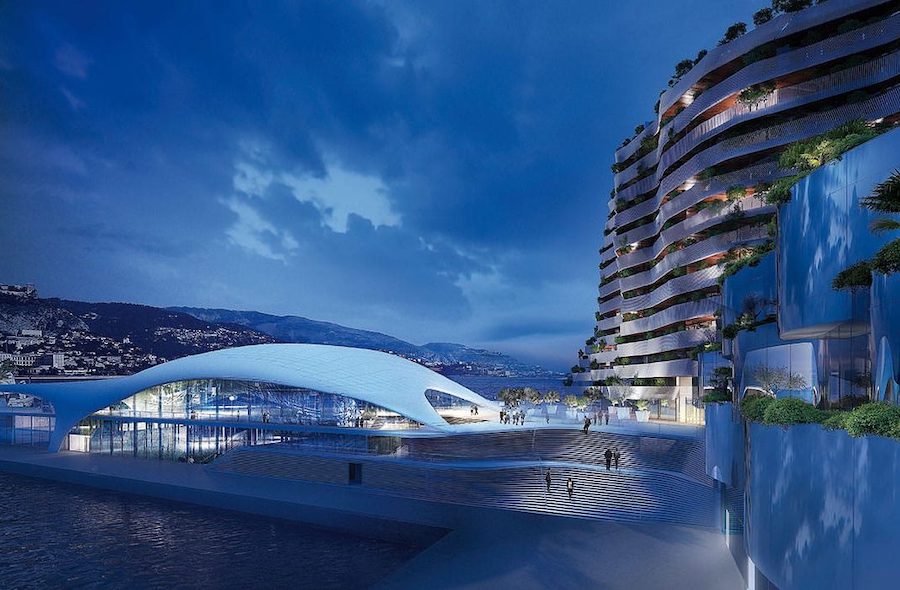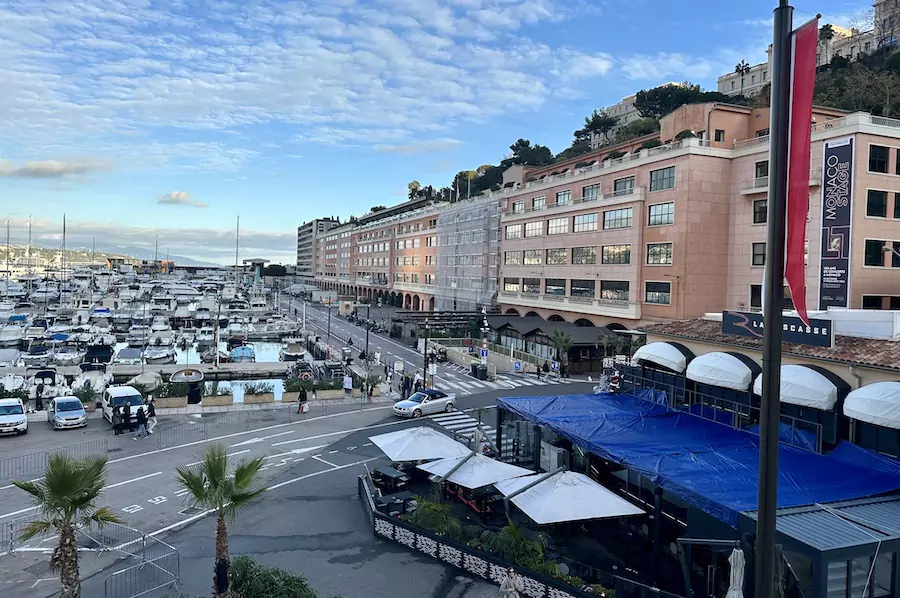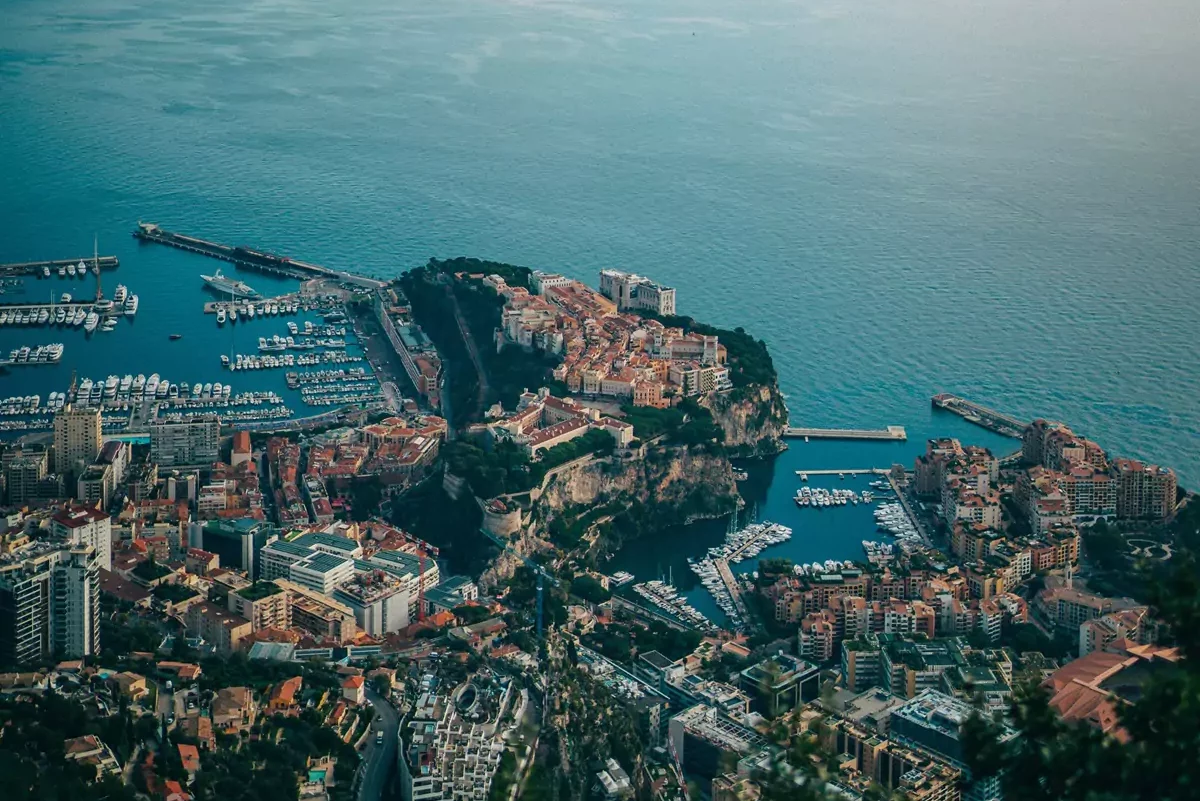A decade after a controversial real estate project on the Esplanade des Pêcheurs was first approved, the company behind the failed project has reportedly taken the case to the European Court of Human Rights, demanding the Monaco Government pay €164 million in damages.
Back in 2014, the Monaco Government and the Société Monégasque d’Etudes et des Gestion Immobilières, now known as Caroli Immo, signed a memorandum of understanding on a vast development project on the Esplanade des Pêcheurs of Port Hercule that would have forever changed the landscape of the Principality.
Huge in scope and radical in design, the concept was to create a mixed-use development that blended cultural sites with housing, retail stores, offices, parking and public spaces on the southern tip of the iconic harbour.
The Esplanade des Pêcheurs backtrack
However, within a year of the signing of the agreement between the government and the developer, all plans, including a bill to decommission the publicly owned land on which the project would sit, were withdrawn by the state.
Official court documents later revealed that the decision had been motivated by “strong reservations on the part of the competent authorities, both from the point of view of [architecture] and [sizing] [of the project] as well as with regard to the constraints relating to the availability of space necessary for the organisation of important events, such as, among others, the Formula 1 Grand Prix”.

As reported by Monaco Life in 2020, Caroli Immo was unhappy with the turn of events and sought financial retribution of €423 million in compensation. This was revised down by the Supreme Court of Monaco in 2020, which ruled €137 million plus interest should be paid out.
At this point, Prince Albert II stepped in and called for a more amicable solution to be found.
The negotiations that followed raised the prospects of a modified project that would include state housing. Monaco’s National Council got behind the plans, passing a law in 2022 that would allow the Principality to benefit more from private developments and permit the decommissioning of the necessary land.
It was thus agreed that the project would be restarted and that Caroli Immo would waive its court-ordered compensation package in exchange for a timetable to begin the works.

Caroli Immo takes its case to the European Court of Human Rights
Then came the next major stumbling block: according to a request made to the European Court of Human Rights (ECHR), shown to AFP, Caroli Immo was “forced to abandon the project… following numerous appeals initiated by companies belonging to another Monegasque entrepreneur… Patrice Pastor”.
Although a Monaco Court dismissed Pastor’s criticisms of the attribution of the project to Caroli Immo, the Caroli Immo group reportedly terminated its agreement with the government in October 2023, thereby reversing its waiver of compensation.
According to Caroli’s request to the ECHR, when the group asked for money from the Monegasque state again, it failed to respond, demonstrating “its desire not to pay”.
Lawyers for Caroli Immo, which is one of the Principality’s three largest developers, are believed to have submitted their case in early February and are awaiting a decision on whether or not it is “admissible”.
The Monaco government is yet to comment on the latest development in this long-running saga.
Join the Monaco Life community – sign up for the Monaco Life newsletter, and follow us on Threads, Facebook, Instagram, LinkedIn and Tik Tok.
Main photo source: Mat Helot, Unsplash
